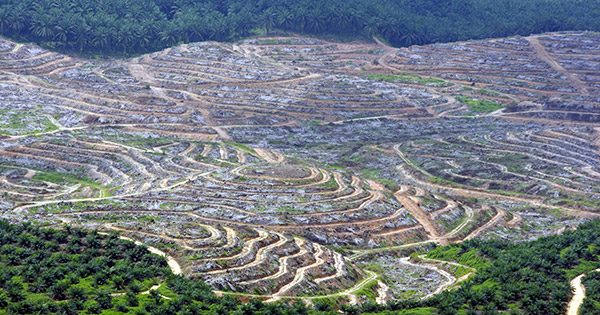SUMMARY
This is AI generated summarization, which may have errors. For context, always refer to the full article.

JAKARTA, Indonesia – Government policies to implement a mix of energy sources by requiring 20% biodiesel fuel could increase the market potential of palm oil and save farmers from a potential crisis due to falling commodity prices of palm oil.
This, according to the Coordinating Minister of Economy Darmin Nasution, who also said Indonesia successfully launched biodiesel B-20 in 2015, an initiative to encourage the energy mix.
The policy, he said, saw a price increase for crude palm oil (CPO) from US$535 per ton to US$656 per ton.
“It shows that B-20 policy has not only created demands for CPO but also protects smallholder farmers from potential crisis,” he said at the 5th International Conference on Oil Palm and the Environment (ICOPE) in Bali on Wednesday, March 16.
The conference, attended by 400 international environmental scientists, senior government officials, civil society, industrial representatives, researchers and academicians from 17 countries, is dedicated to finding ways that oil palm can mitigate and adapt to climate change.
About 50% of products on supermarket shelves contain palm oil – of which Indonesia and Malaysia are the world’s top two producers.
Other solutions
Naustion noted that at the 21st session of the Conference of Parties (COP 21) in Paris, countries reached a consensus on targets for emission reduction.
Combining CPO with diesel to form biodiesel would reduce carbon emissions by up to 29% in 2030, and by up to 41% with international help.
“So, the government is planning to focus on planting more oil palm in low-productivity areas to increase production,” Nasution said.
He also said that industrialized countries should provide funds to reduce global carbon and urged them to take the concrete step by paying premium prices of CPO.
“Therefore, the developed nations should help developing countries to support these efforts,” he said.
Nasution emphasized that Indonesia should anticipate challenges and opportunities as well as maintain palm oil plantations in the future, because of Indonesia’s position as the world’s largest producer.
Chairman and CEO of Golden-Agri Resources (GAR) Franky O. Widjaja agreed, adding, “Palm oil is an engine to generate employment, alleviate poverty and improve the lives and welfare of 16 million Indonesians, directly and indirectly.”
Challenges
The conference comes as fires consume areas of Riau and East Kalimantan. Last year, Indonesia’s economy took a $16-billion hit from forest fires.
For the past 20 years, Indonesia’s mostly man-made forest fires have generally started up around March and blazed on and off until October as land is cleared for agriculture.
Policing the companies and small farmers responsible for lighting fires has been a challenge for the government, and the forestry industry is often described as being riddled with corruption.
In the ICOPE 2016, the delegates will also discuss calculation of carbon footprint, to emission reduction from palm oil mill.
Meanwhile, the government continues to work on convincing France not to impose a progressive tax on palm oil imports.
In a letter dated Tuesday, February 2 addressed to Minister Segolene Royal of France’s Ministry of Ecology, Sustainable Development and Energy, Indonesian Minister of Trade Tom Lembong expressed Indonesia’s “great concern” about the French Sentate’s decision to apply taxes on palm oil and palm kernel oil beginning 2017.
On Thursday, January 21, the French Senate adopted an amendment to apply a tax of 300 euros per ton on palm oil starting next year, and 900 euros per ton by 2020, with further increases on an annual basis.
Indonesia says the tax would make palm oil and kernel uncompetitive, and breach the General Agreement on Tariffs and Trade 1994, which “provides that imported products shall not be subject, directly or indirectly, to like domestic products.”
The Indonesian government has had some success, as French authorities agreed to cut the proposed tax from 300 to 90 euros per ton. However, Indonesia continues to object the import tariff, which will still affect the country greatly. – Rappler.com
Add a comment
How does this make you feel?
There are no comments yet. Add your comment to start the conversation.